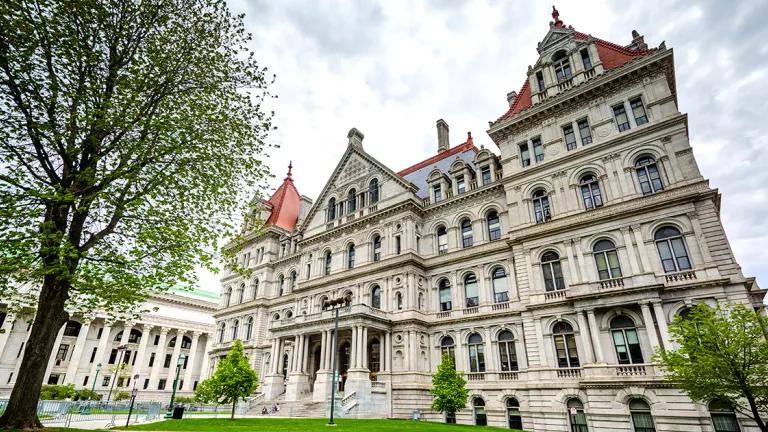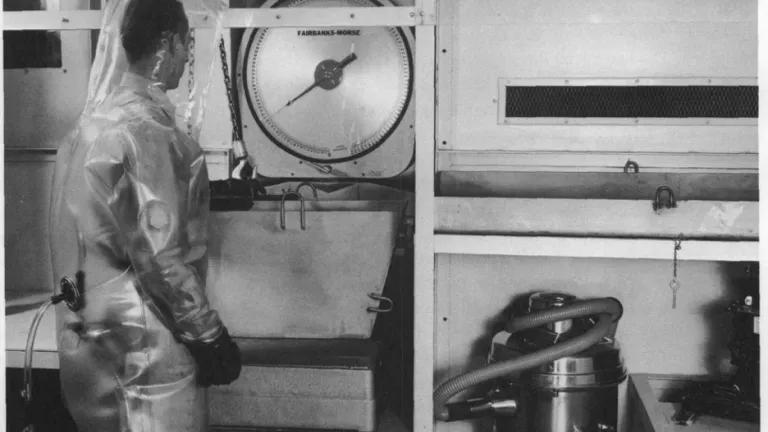This morning the New Jersey state legislature will begin consideration of “strategies to prevent the premature retirement of existing, licensed, and operating nuclear power plants” at a rare joint hearing of the Senate Environment and Energy and the Assembly Telecommunications and Utility committees.
The primary owner of nuclear plants in New Jersey, Public Service Electric & Gas, has been working for many months to persuade state legislators to provide financial support for its plants. No one has introduced a bill yet, but we expect to see one shortly after the hearing, with committee and floor votes coming in quick succession, in an effort to enact legislation during the lame duck session, under the signature of outgoing Governor Chris Christie.
The hearing will provide an opportunity to get all of the issues out on the table. NRDC will be there to provide lessons learned from our experience grappling with the transition from uneconomical nuclear plants in California, around the Diablo Canyon Joint Proposal (see my colleague Ralph Cavanagh’s blogs on the deal here and here); in Illinois, with the Future Energy Jobs Act (see my colleague Nick Magrisso’s blog here); and in New York, with the Clean Energy Standard.
We’ve put together an issue brief, available here, providing the details from these states, as well as Connecticut, which also enacted legislation recently, and setting out best practices for transitioning from uneconomical nuclear plants. These include:
- requiring that any financial support be predicated on a clear showing of financial distress—the plant owner has to open their books to state regulators;
- narrowly tailoring any support, for example, adjusting it to reflect wholesale market indices and Regional Greenhouse Gas Initiative allowance value fluctuations;
- time-limiting any support, because the purpose is to manage a transition, not support uneconomical plants indefinitely
- sufficiently scaling up efficiency and renewable energy so that these truly clean resources can replace the nuclear plants when they close – more details on that below;
- committing to a plan for employees to retain people for the long process of decommissioning plants when they close, train them people for positions elsewhere in the company, or provide severance packages; and
- supporting communities that depend on nuclear plants for a substantial portion of their tax base with a glide path, to give them time to develop strategies to attract new businesses and investment.
Nuclear plants across the country are facing closure before their licenses expire because they are not economically viable in today’s competitive wholesale electricity markets, or because it will not make economic sense to invest in refurbishments when the plants are in need in upgrades.
Part of the problem is that the market does not value the low-carbon attributes of nuclear power, but even where carbon pollution is capped and there is a currently modest price on carbon, as in the RGGI states, nuclear simply can’t compete in the market place against lower cost energy efficiency, natural gas and renewables.
Those low-carbon attributes are important to consider in a warming world, but we don’t want to pay more for nuclear when lower cost solutions like efficiency and renewables are available, and we have to address the very significant safety, global security, environmental, and economic risks that nuclear power imposes on society, from the mining of uranium to plant operations to the long-term storage of nuclear waste. The 2011 Fukushima nuclear disaster in Japan, the worst since Chernobyl, illustrates that as a society we have not yet figured out how to manage these risks properly.
Having said that, we also recognize the real challenges posed by the potentially abrupt closure of existing nuclear power plants. We need time to plan an orderly transition. We need time to sufficiently scale up energy efficiency and renewables to replace nuclear power, to ensure that when these plants do close we don’t experience a near- to medium-term spike in pollution from burning more natural gas, oil and coal. And we also need time to avoid detrimental impacts to workers and to host communities that rely on nuclear facilities for their tax base.
As mentioned, a key element of transitioning from uneconomical nuclear plants is scaling truly clean energy efficiency and renewables to take their place.
In New Jersey, the current efficiency programs deliver savings equal to 0.44% of load annually, compared to the leading states that are delivering over 2% (and even above 3% in states like Massachusetts) savings every year. To reach this scale, the Board of Public Utilities (BPU) should
- direct utilities to invest in all cost-effective energy efficiency and dramatically increase efficiency for low and moderate-income families who face unique challenges;
- create a regulatory environment that aligns utility shareholder and customer interests and puts utilities in the business of delivering affordable, reliable, clean and modern energy services at least cost, not selling as many kWhs and therms as possible.
We also need policies to accelerate the commercialization of clean, flexible, renewable energy technologies, so they become the least cost option as quickly as possible. In New Jersey these include
- strengthening the Renewable Portfolio Standard to 50% by 2030
- reform its solar incentive to dramatically reduce the cost while providing greater access to all customers and communities; and
- setting the stage to access offshore wind at the lowest cost and in an environmentally sound way that maximizes economic development and energy system benefits for the state.
New Jersey has an opportunity to craft a comprehensive transition plan for nuclear power that addresses every one of these issues and sets a model for the nation to follow. And the state has the time needed to craft such a plan; its plants are not going to close tomorrow. There is no good public policy reason to advance a stand-alone subsidy for nuclear power plants in the waning days of the outgoing Christie administration. Doing so would create the absolute worst precedent in the nation.
The Murphy administration is about to take office with an ambitious clean energy agenda. If the state legislature decides to take action to avoid the abrupt closure of New Jersey’s nuclear plants, it should work with the Murphy administration to develop a comprehensive and orderly transition plan for nuclear power to be included in that agenda. Acting in an isolated way now would undermine the new governor before he walks in the door.



